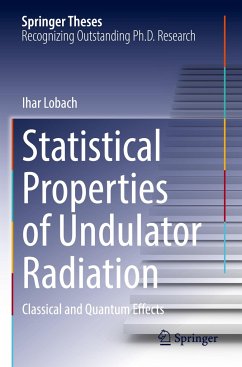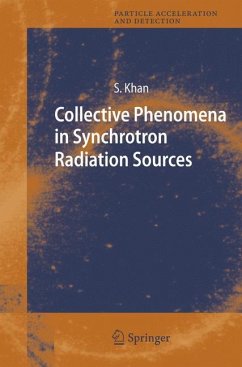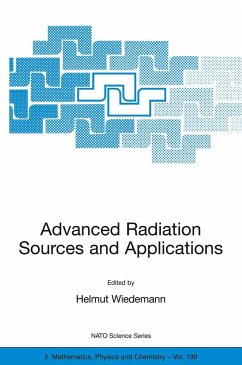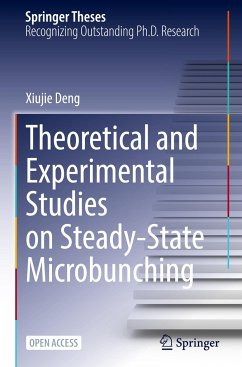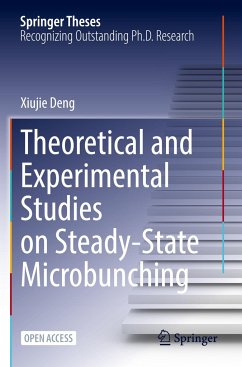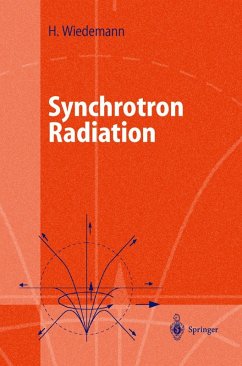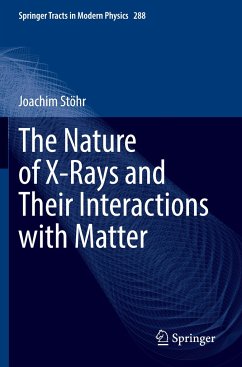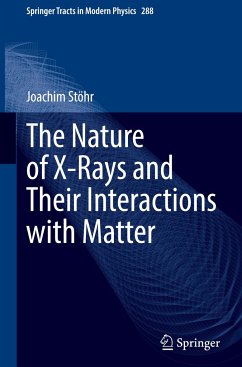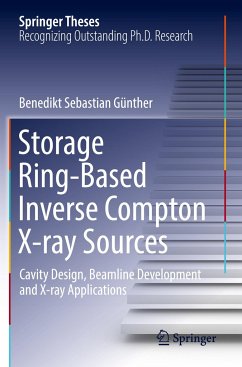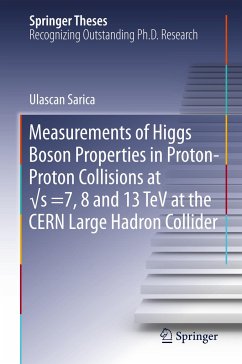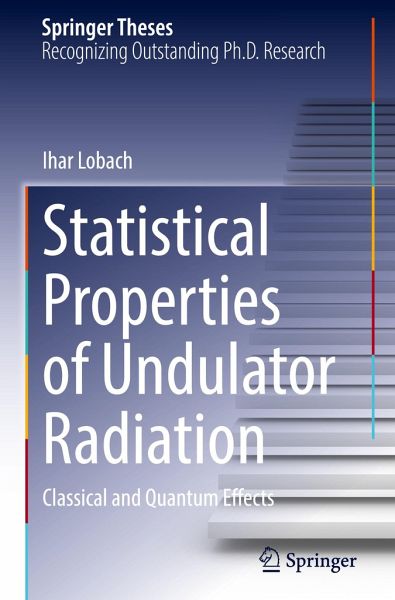
Statistical Properties of Undulator Radiation
Classical and Quantum Effects
Versandkostenfrei!
Versandfertig in 6-10 Tagen
121,99 €
inkl. MwSt.
Weitere Ausgaben:

PAYBACK Punkte
61 °P sammeln!
This thesis presents significant advances in the understanding of the statistical properties of undulator radiation via two experiments carried out in the Integrable Optics Test Accelerator (IOTA) storage ring at Fermilab. The first experiment studied the turn-to-turn fluctuations in the power of the radiation generated by an electron bunch. The magnitude of these fluctuations depends on the 6D phase-space distribution of the electron bunch. The author presents the most complete theoretical description of this effect to date, and shows that it can be used to measure some electron bunch paramet...
This thesis presents significant advances in the understanding of the statistical properties of undulator radiation via two experiments carried out in the Integrable Optics Test Accelerator (IOTA) storage ring at Fermilab. The first experiment studied the turn-to-turn fluctuations in the power of the radiation generated by an electron bunch. The magnitude of these fluctuations depends on the 6D phase-space distribution of the electron bunch. The author presents the most complete theoretical description of this effect to date, and shows that it can be used to measure some electron bunch parameters (e.g. its size and divergence). Remarkably, the performance of this technique improves for smaller bunches and shorter radiation wavelengths and it may, therefore, be particularly beneficial for existing state-of-the-art and next-generation low-emittance high-brightness x-ray synchrotron light sources. In the second experiment, a single electron was stored in the ring, emitting a photon only once per several hundred turns. In this regime, any classical interference-related collective effects were eliminated, and the quantum fluctuations could be studied in detail to search for possible deviations from the expected Poissonian photon statistics. In addition, the photocount arrival times were used to track the longitudinal motion of a single electron and to compare it with simulations. This served as an independent measurement of several dynamical parameters of the storage ring.





